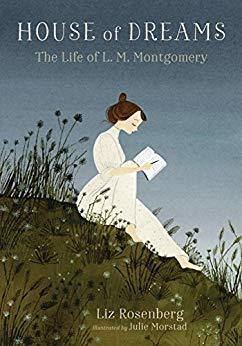More on this book
Community
Kindle Notes & Highlights
Maud’s family history began on the heels of one stubborn, seasick, strong-willed woman.
“I lived my double life, as it seems to me I have always done — as many people do, no doubt — the outward life of study and work . . . and the inner one of dreams and aspirations.”
Her mother’s absence was always in sight: aching, mysterious, and unforgettable.
Only in fiction, in the much-altered character of Marilla Cuthbert, did Maud ever celebrate her grandmother’s good qualities: her reliability, self-sacrifice, her steadfast attention.
Grandmother Lucy Macneill remained at her side. Maud wrote, “I . . . could not bear to be out of her arms. I kept stroking her face constantly
Away down beyond the brown fields lay the sea, blue and sparkling, dotted by crests of foam. The walk in the fresh moist spring air was lovely and when I got down to the shore and climbed out on a big rock I just held my breath with delight. . . . To my left extended the shining curve of the sand shore; and on my right were rugged rocks with little coves, where the waves swished on the pebbles. I could have lingered there for hours and watched the sea with the gulls soaring over it.
No place was harder to leave. None moved her so powerfully. “It is and ever must be hallowed ground to me,” she declared.
“I was very near to a kingdom of ideal beauty,” she claimed.
“You are never poor,” she declared, “as long as you’ve got something to love.”
“Isn’t it queer that the things we writhe over at night are seldom wicked things? Just humiliating ones.”
“I cannot remember the time when I was not writing, or when I did not mean to be an author.”
She associated religion with grim fear and long lists of rules.
she had firmly in place her most enduring dream, the “one wish and ambition” of her childhood: to write, and to take her place among the world’s “poets and artists and storytellers . . . who have never forgotten the way to fairyland.”
The room was open and airy; the only crowded space in it was her bookshelf.
“I have moved upstairs again — which means that I have begun to live again. . . . To me it means the difference between happiness and unhappiness.”
Everything in Maud’s early life led to the writing of that book, but she had to overcome a hundred obstacles to achieve it.
When the evening sun is setting Quietly in the west, In a halo of rainbow glory, I sit me down to rest.
“Oh, as long as we can work we can make life beautiful!”
“Hate is only love that has missed its way,”
“Life looked to me fair and promising. . . . Now everything is changed and darkened.”
Life, she later argued, was just as vivid in small towns as in big cities.
Maud performed the great alchemy of art. She transformed her own history of abandonment into a story of rescue.
Fiction is the art of transformation. For many writers, including L. M. Montgomery, it allows for happy reconciliations they cannot achieve in real life.
Anne of Green Gables is a book about creating lasting family. It is a celebration of place, a story about belonging. No one but Maud Montgomery, with all her checkered history and heart-hungry longing, could have created it.
“I think we should just write out what is in us — what our particular ‘demon’ gives us — and the rest is on the knees of the gods. If we write truly out of our own heart and experience that truth will find out and reach its own.”
“Not a great book at all — but mine, mine, mine,”
Edgar Allan Poe: “At nightfall the tired body and dull brain went back to their rest.”
She had always been there
Grandmother Lucy Macneill meant home, and with her death, Maud lost her essential touchstone.
“for friendship there should be similarity; but for love there must be dissimilarity.
Writing, for Maud, was an act of preservation. “The world can never be the same again,” she confided in her journal. “Our old world has passed away forever.”
She died just after dawn, quietly, “as a tired child might fall asleep.”
Writing, for Maud, was rescue, escape, salvation, and purpose.
Maud had always possessed a preternatural ability to remove herself from a real situation into a dreamscape more vivid.
Confession didn’t ease the pain.
“My conception of heaven,” she wrote in her journal, “would be life without fear.”
“I have come to feel very strongly that the stigma surrounding mental illness will be forever upon us as a society until we sweep away the misconception that depression happens to other people, not us — and most certainly not to our heroes and icons,”
“Perfect happiness I have never had — never will have,” she confided to her journal. “Yet there have been, after all, many wonderful and exquisite hours in my life.”


